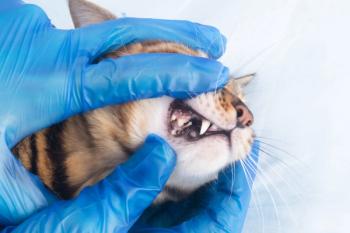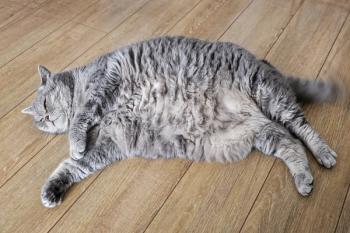
Journal Scan: Is there an association between the severity of CKD and risk of UTIs in cats?
A study looks at the association between chronic kidney disease and UTIs in cats.
Why they did it
The authors of this study sought to determine the prevalence and associated clinical signs in cats with chronic kidney disease (CKD) found to have a positive urine culture results. In addition, researchers also aimed to determine risk factors for positive urine culture results as well as the associations between a positive urine culture result and disease severity.
What they did
Researchers prospectively performed 134 urine cultures in 86 cats with a new or previous diagnosis of CKD between November 1, 1999, and December 31, 2003. CKD was categorized according to International Renal Interest Society (IRIS) guidelines.
Urine cultures were submitted regardless of the presence of clinical signs (i.e. stranguria, hematuria, and pollakiuria), and enrolled cats were followed through May 31, 2009. A serum creatinine concentration was measured either at the time of the first urine culture (if all culture results were negative) or at the time of the first positive urine culture result.
What they found
Researchers found that 29%(25/86) of cats with CKD had a positive culture result at some point during the study and that most of these (18/25) were occult infections. The median age of the cats was 13 years, and most had IRIS stage 2 or 3 CKD. The researchers found no association between an occult positive urine culture result and disease severity. Among the five cats with two or more positive urine culture results, the median age was 16 years and all were female.
Most of the positive urine culture results (87%) had an active urine sediment, and Escherichia coli was the most common organism cultured. The researchers found that female cats with CKD had a twofold increased risk for an occult positive urine culture result for each 1-year increase in age. The creatinine concentration was associated with survival for the first 200 days after enrollment, with every 10-µmol/L (0.1-mg/dl) increase corresponding to a 3% increase in the risk of death.
The researchers acknowledge that the lack of a consistent plan to repeat urine cultures on all cats—particularly for those with negative urine culture results—may have resulted in a substantial number of occult urinary tract infections (UTIs) going undiagnosed. Optimal treatment of occult UTIs in this population was not determined.
Take-home message
Among cats with CKD, there was no association found between occult UTI and survival, and cats with occult UTIs were more likely to be older and female. The serum creatinine concentration was predictive of survival only within the first six to seven months, and there was no association between the presence of a UTI and the severity of azotemia.
White JD, Stevenson M, Malik R, et al. Urinary tract infections in cats with chronic kidney disease. J Feline Med Surg 2013;15(6):459-465.
Link to article:
Jennifer L. Garcia, DVM, DACVIM, is a veterinary internal medicine specialist at Sugarland Veterinary Specialists in Houston, Texas.
Newsletter
From exam room tips to practice management insights, get trusted veterinary news delivered straight to your inbox—subscribe to dvm360.





